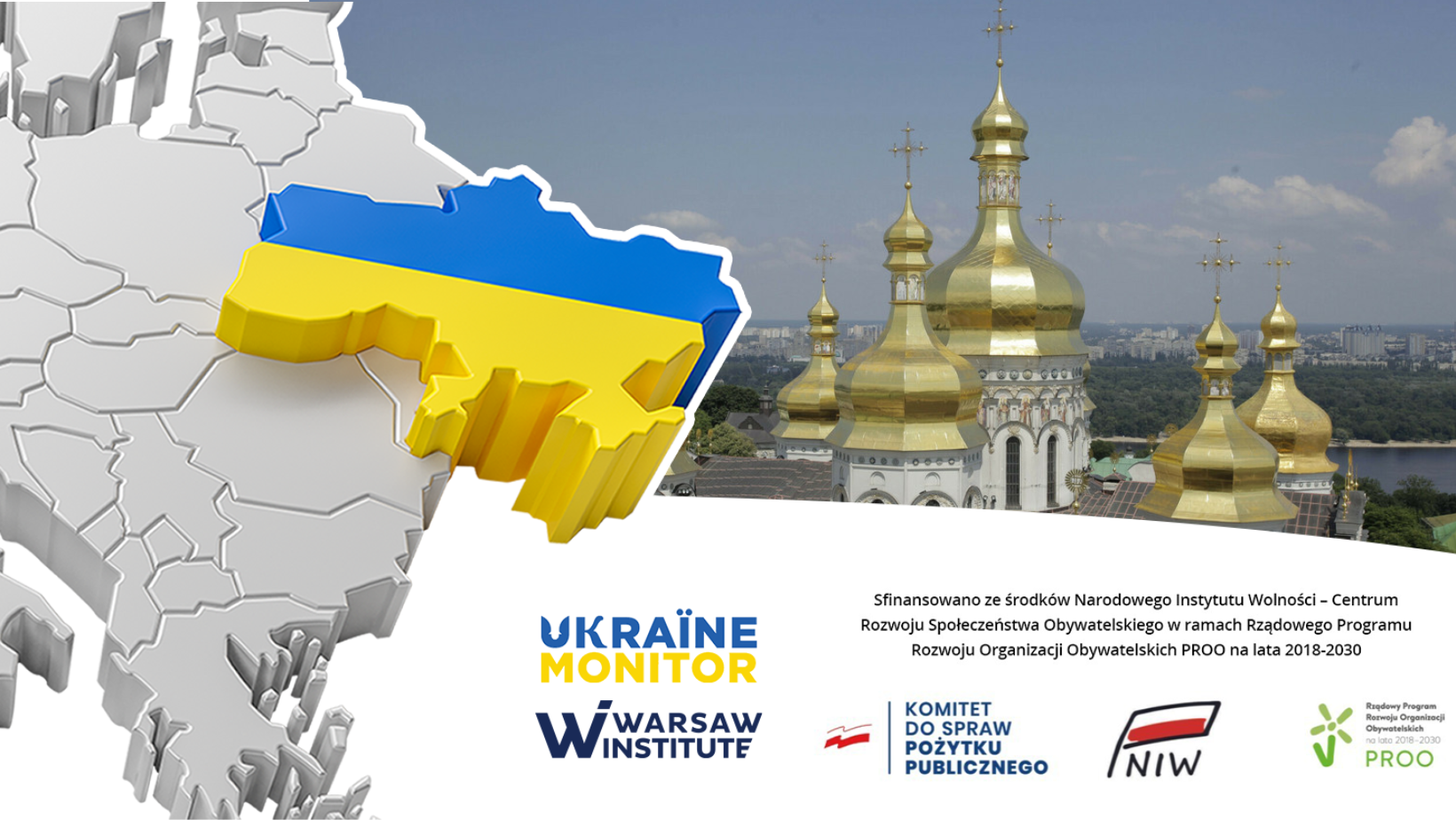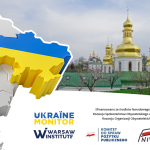
Ukraine Monitor presents the latest news concerning internal and external matters of Ukraine – a unique country where the interests of the East and the West clash almost every day.
Date: 11 November 2023 Author: Szymon Polewka
Ukraine Advances Legislation to Ban Moscow-Affiliated Orthodox Church
Ukraine’s parliament voted overwhelmingly (267-15) on Thursday, October 19 to advance legislation seen as effectively banning the Ukrainian Orthodox Church over its ties to Moscow. The bill requires further voting before it gets finalized and reaches the desk of President Volodymyr Zelensky. Ukraine’s efforts to ban all Moscow-linked religious affiliation is yet another chapter in the historical split between the Orthodox churches in the two countries that generates thus political tensions.

Historically, the Russian Orthodox Church, or the Moscow Patriarchate, has exploited religious convergence to exert influence on Ukraine. The Romanovs, for example, believed that a common Orthodox denomination of eastern Slavic nations could bring them together under the banner of Great Rus’. Whereas the Soviet regime viewed religion as an obstacle, Vladimir Putin has regularly professed and used religious connections to the Orthodox Church for political gain.
Ukraine is an overwhelmingly Orthodox Christian nation, with 78 percent of adults identifying as Orthodox, according to a 2015 Pew Research Center survey. This is up from 31 percent of respondents who said they were Orthodox Christian in 1991, so the year the officially atheist Soviet Union collapsed and Ukraine gained its independence. With roughly 35 million Orthodox Christians, Ukraine now has the third-largest Orthodox population in the world, after Russia and Ethiopia.
After the Euromaidan revolution in 2014, Kyiv began intensified efforts to split from the Russian Church. To break ties with the Russian Church, in 2019, former Ukrainian President Petro Poroshenko announced the creation of an independent Ukrainian Orthodox Church, marking a historic split from Russia. Independence, or autocephaly, was granted to the new church from the Ecumenical Patriarchate of Constantinople, Bartholomew. Consequently, two major Orthodox denominations have been present in the country.
According to the OSW Centre for Eastern Studies, before the war, there were 11,500 parishes of the Russian Orthodox Church and just 6,000 parishes of the newly-formed and newly-recognised Orthodox Church of Ukraine. Since the Russian invasion that began on February 24, 2022, many parishes have switched allegiance to the Ukrainian national church. The whole process is gaining momentum although some priests of the Ukrainian Orthodox Church of the Moscow Patriarchate say they disapprove of the actions of Patriarch Kirill and the Russian Federation.
References:
Aidan Houston, Peter Mandaville, The Role of Religion in Russia’s War on Ukraine, United States Institute of Peace, March 17, 2022 https://www.usip.org/publications/2022/03/role-religion-russias-war-ukraine
David Masci, Split between Ukrainian, Russian churches shows the political importance of Orthodox Christianity, Pew Research Center, January 14, 2019 https://www.pewresearch.org/short-reads/2019/01/14/split-between-ukrainian-russian-churches-shows-political-importance-of-orthodox-christianity/
Jadwiga Rogoża, Ucieczka do przodu: Ukraiński Kościół Prawosławny Patriarchatu Moskiewskiego wobec wojny, Ośrodek Studiów Wschodnich, June 6, 2023 https://www.osw.waw.pl/pl/publikacje/analizy/2022-06-06/ucieczka-do-przodu-ukrainski-kosciol-prawoslawny-patriarchatu
Peter Smith, Ukraine’s parliament advances bill seen as targeting Orthodox church with historic ties to Moscow, Associated Press, October 20, 2023 https://apnews.com/article/ukraine-parliament-orthodox-church-russia-kyiv-moscow-d7bf799f70c490e90099472f86517df4
Rusłan Szoszyn, Ukraina ma własną Cerkiew, niezależną od Rosji, Rzeczpospolita, December 16, 2018
https://www.rp.pl/wydarzenia/art9521061-ukraina-ma-wlasna-cerkiew-niezalezna-od-rosji
Support Us
If content prepared by Warsaw Institute team is useful for you, please support our actions. Donations from private persons are necessary for the continuation of our mission.
All texts published by the Warsaw Institute Foundation may be disseminated on the condition that their origin is credited. Images may not be used without permission.















